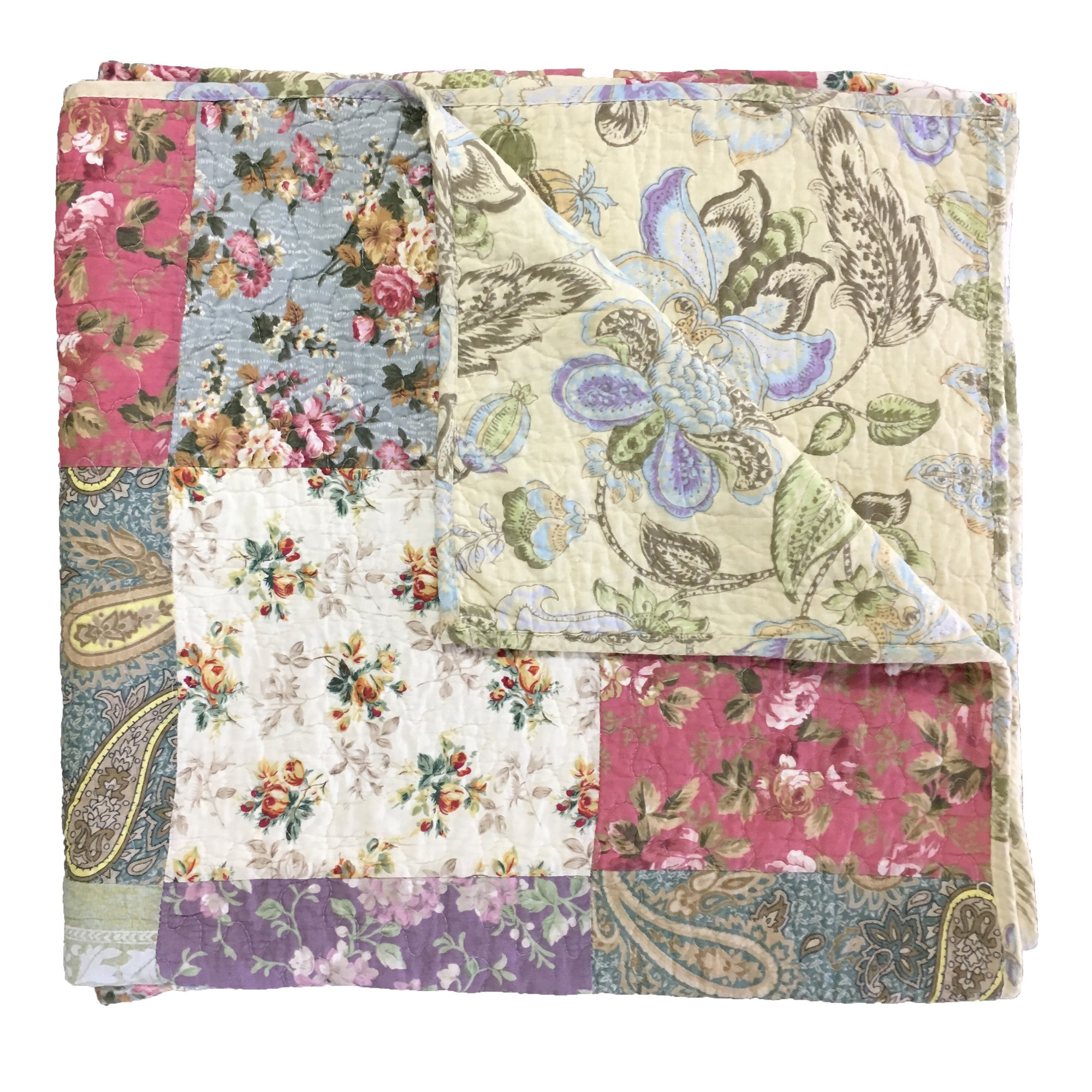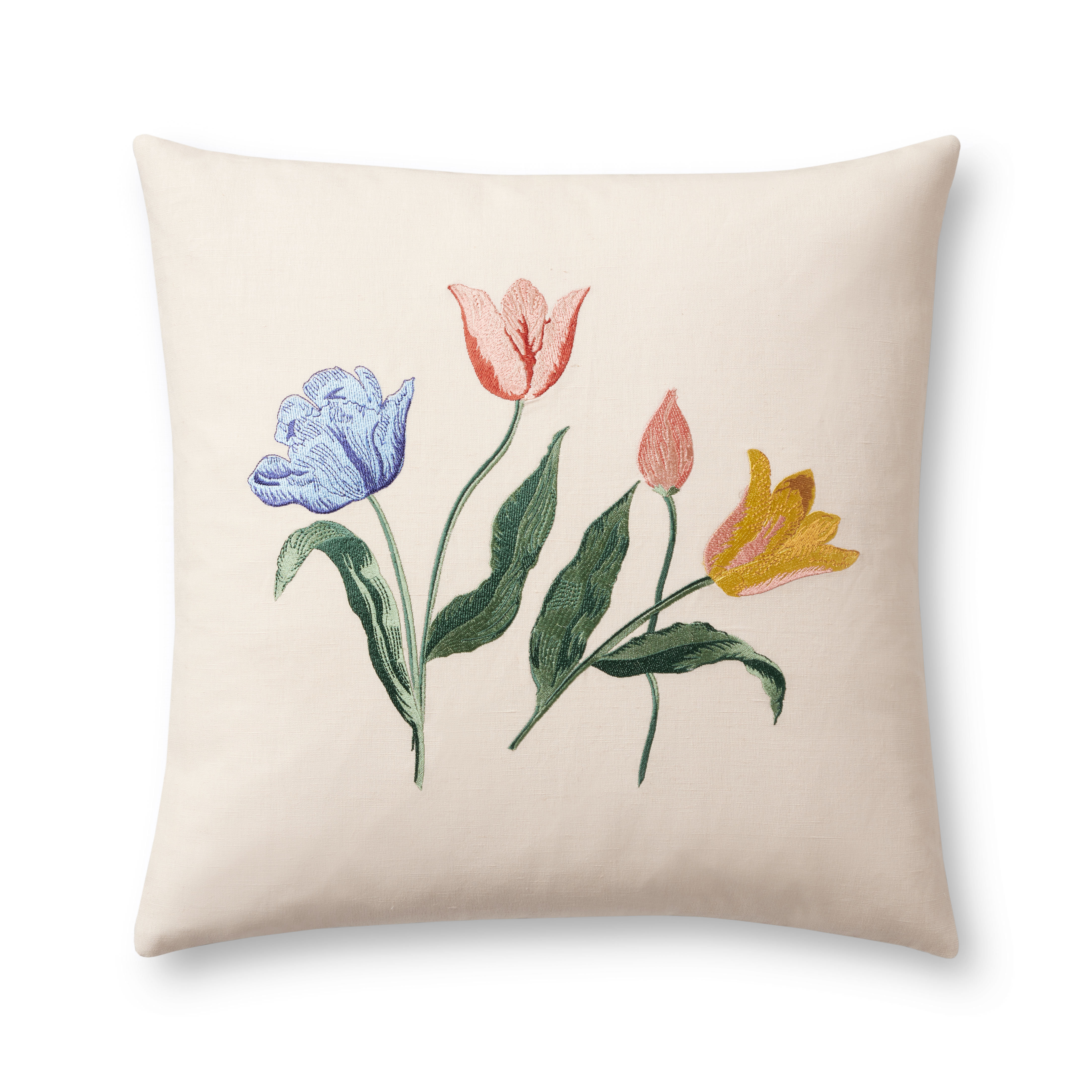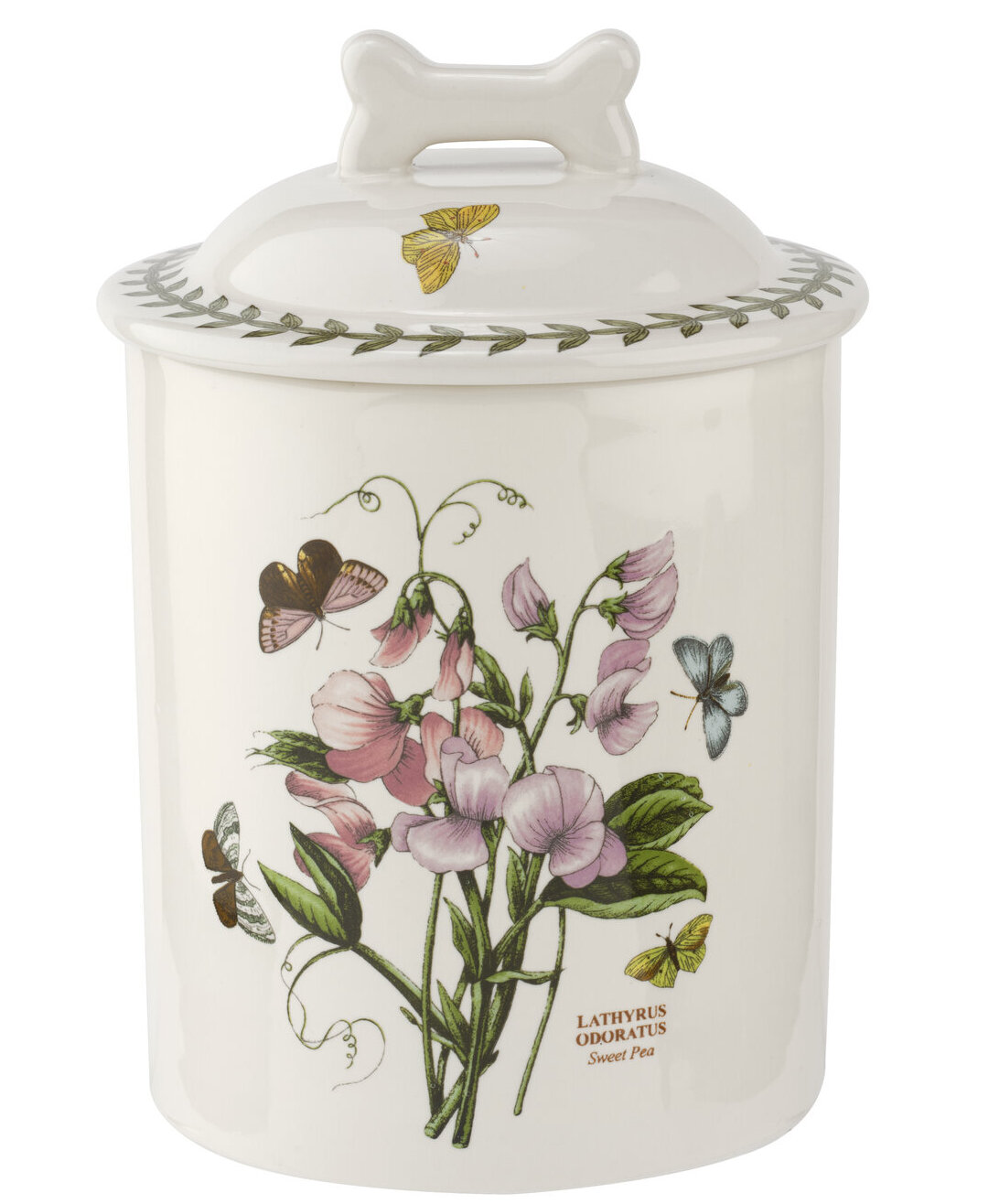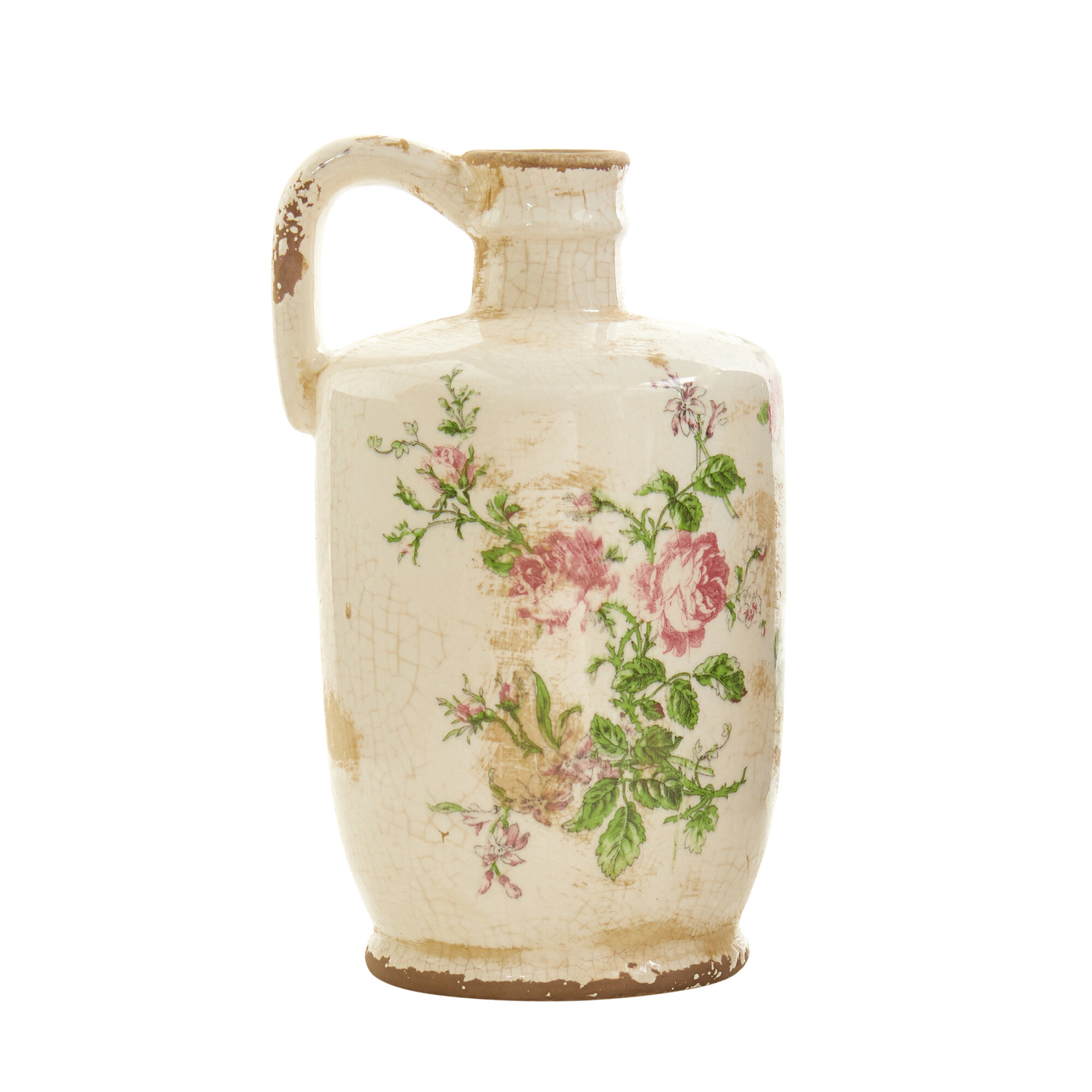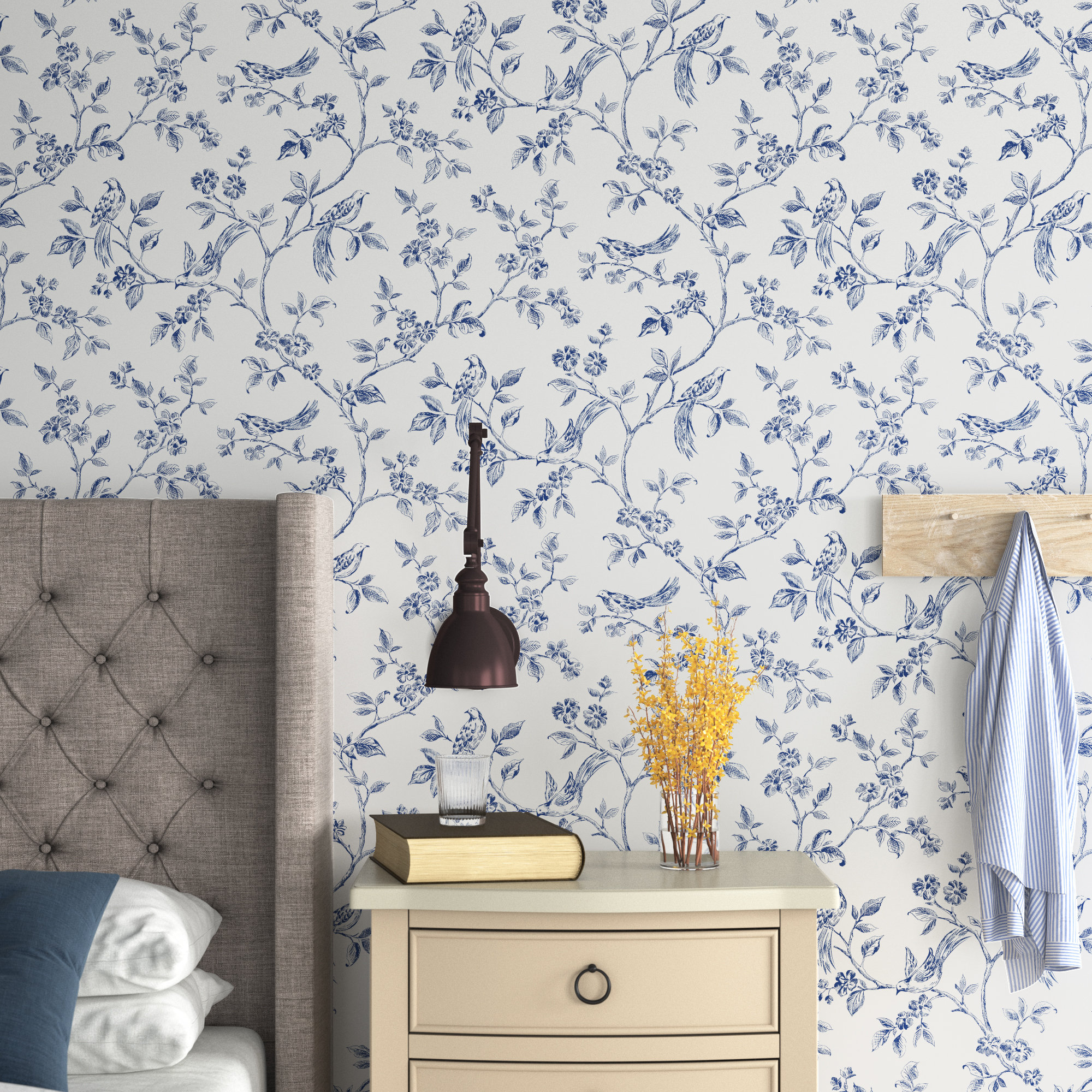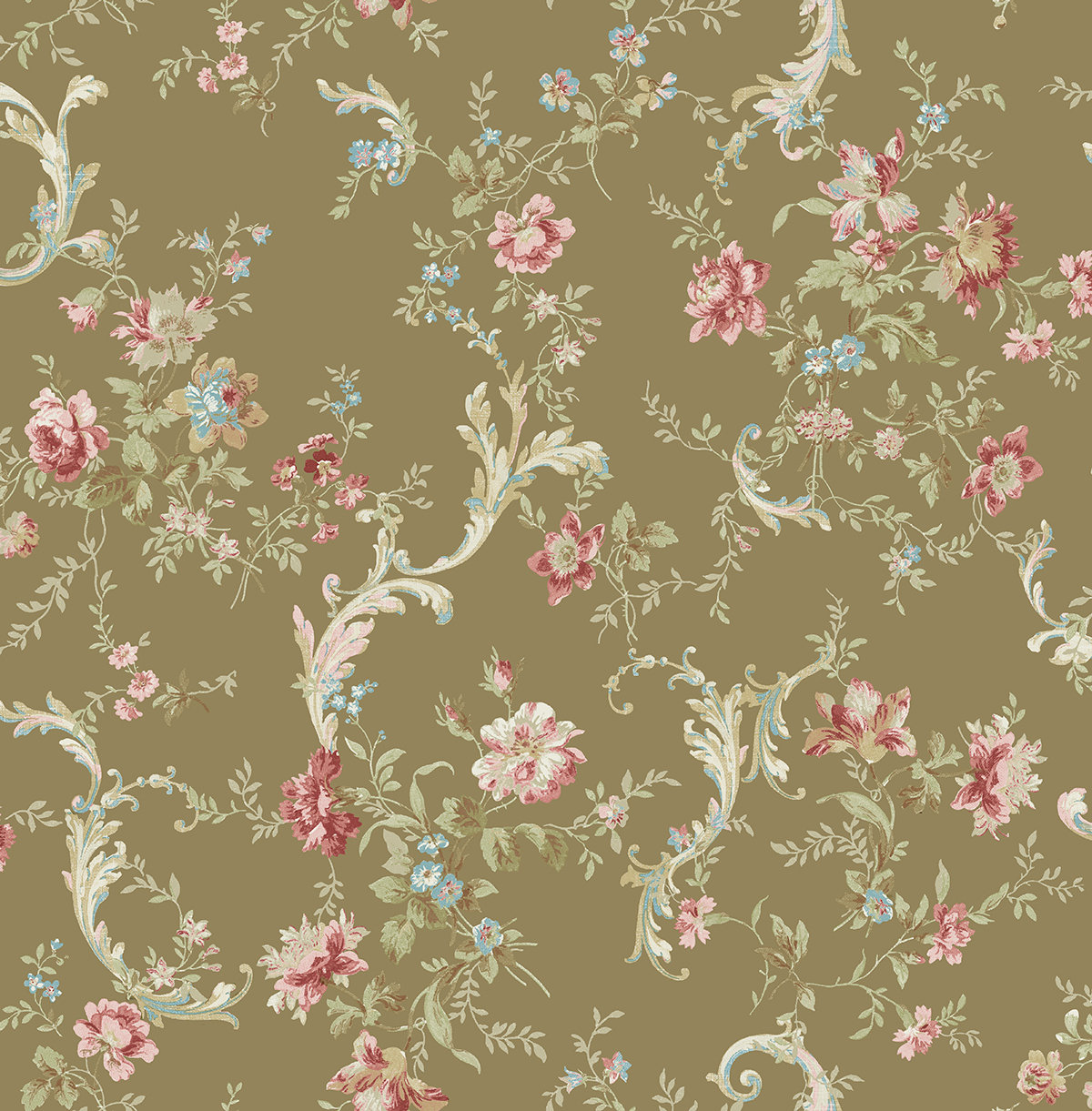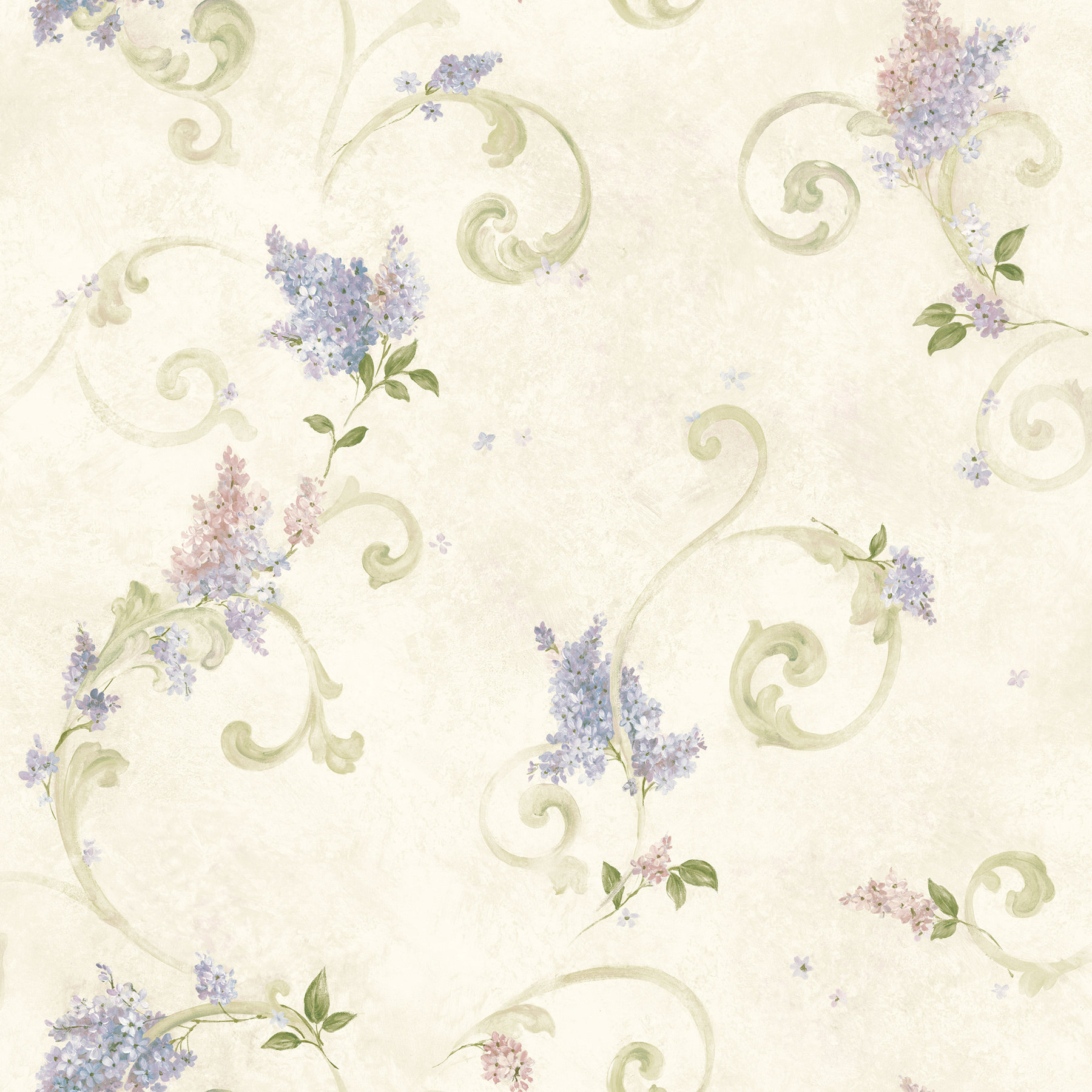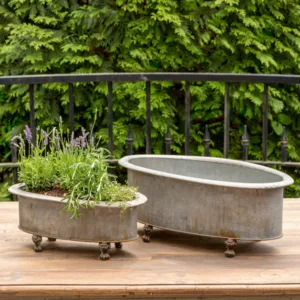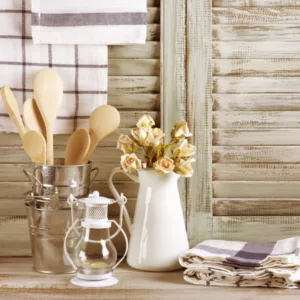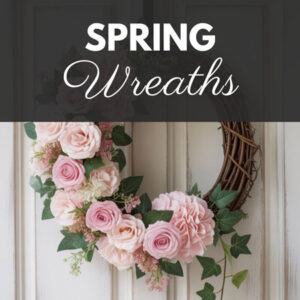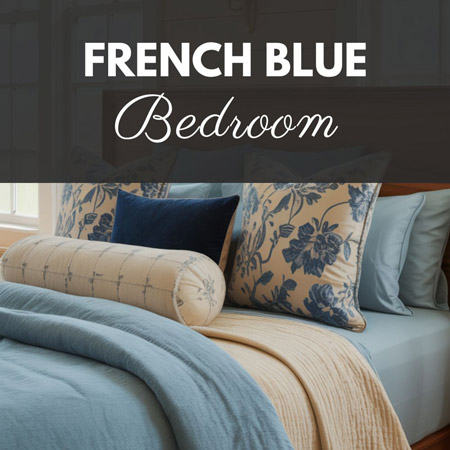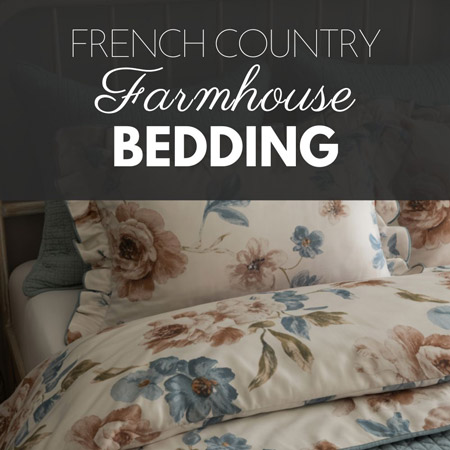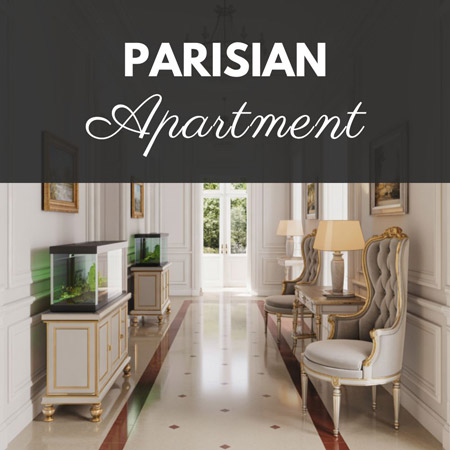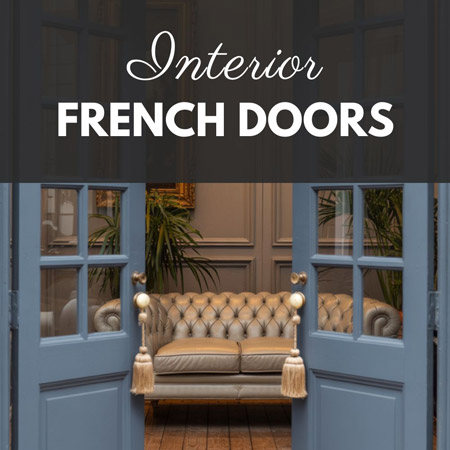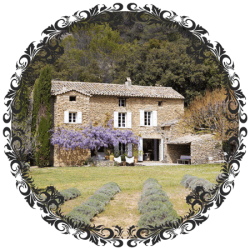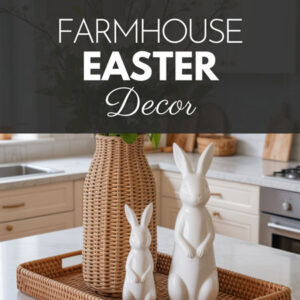
Beautify Your Space: 17 Expert Tips for French Country Floral Patterns
Ah, the French countryside—with its sprawling lavender fields, quaint stone cottages, and an air of timeless elegance that seems to whisper through the breeze.
I know many of you dream of capturing a slice of this French charm within your homes.
And what better way to do so than through French country floral patterns?
Choosing the right floral patterns is much like selecting the perfect bouquet for a cherished friend—it’s all about understanding the beauty of each bloom and how it contributes to the overall harmony of the arrangement.
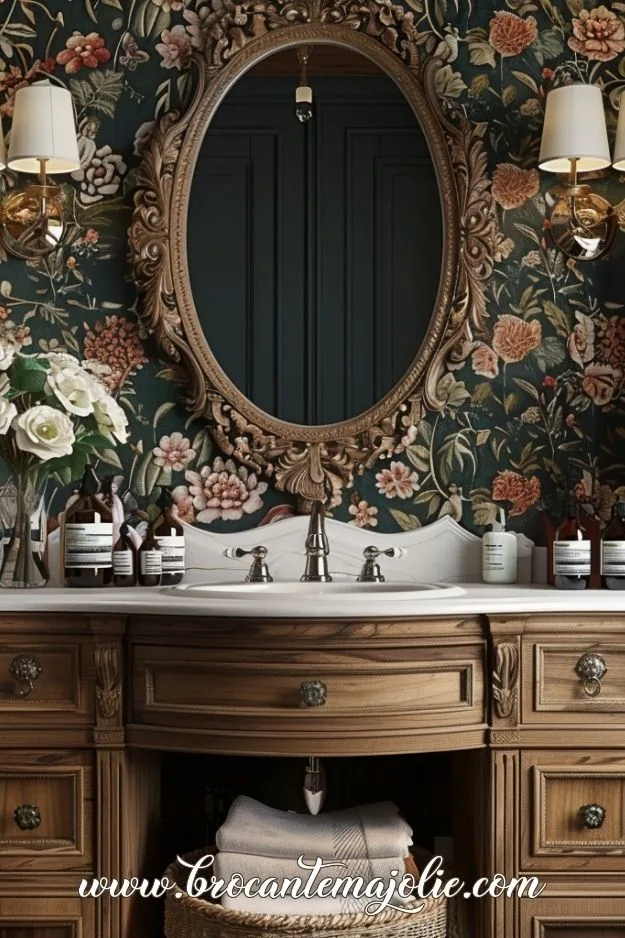
Whether you’re looking to simply refresh a room with a touch of spring or infuse your entire home with a floral homage to the French countryside, I’m here to guide you through making those choices with ease!
By the end of this article, you’ll be armed with the knowledge and inspiration to weave the essence of French country floral patterns into your decor.
Click the image and the Pinterest logo to save this article for later 👇
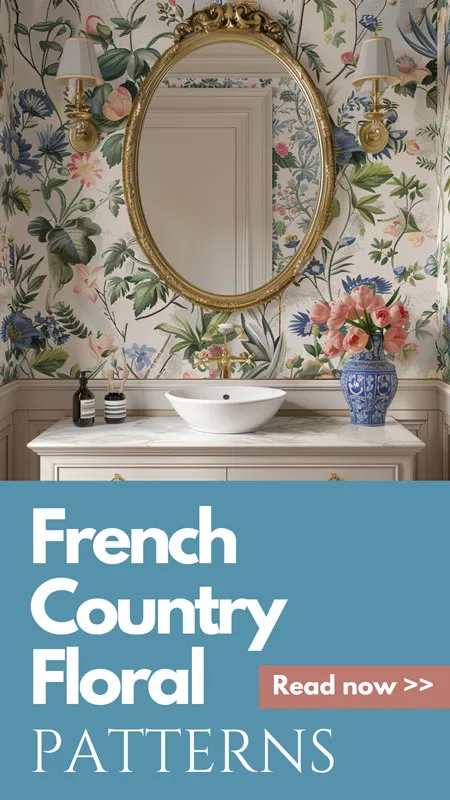
The Essence of French Country Floral Patterns
At the core of French country decor lies a true appreciation for the natural beauty and rustic charm of the French countryside.
Floral patterns play a pivotal role in this style.
Understanding the essence of these patterns is key to incorporating them into your home in a way that feels both authentic and personal.
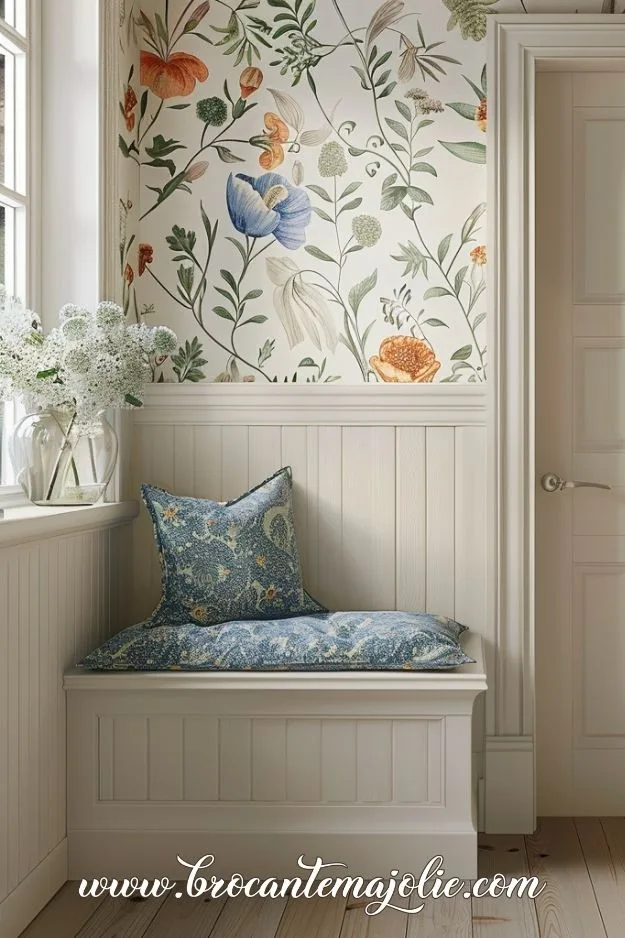
Historical Roots and Inspiration
From the lavender fields of Provence to the vineyards of Burgundy, the diversity of France’s flora has inspired generations of artisans to create textiles and ceramics adorned with these natural elements.
These patterns are a reflection of the French joie de vivre and a homage to the land that provides such beauty.
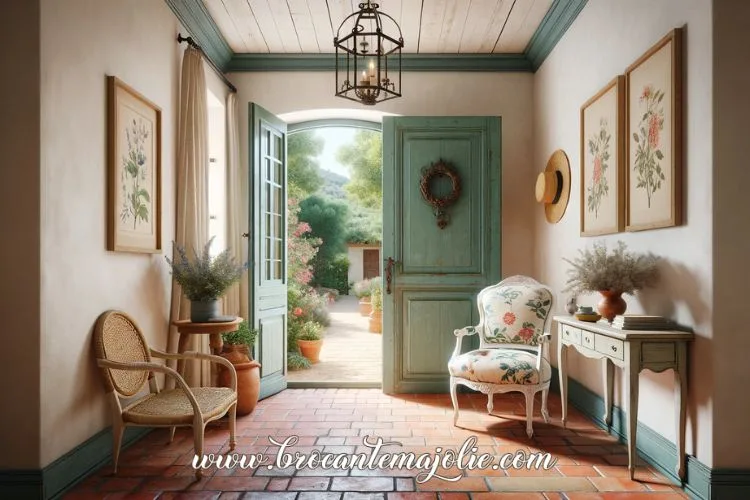
Characteristic Features
French country floral patterns are characterized by their soft, muted colors and informal designs.
Unlike the more formal and structured floral designs found in other styles, French country florals tend to be more whimsical and free-flowing. They often feature a mix of flowers that could be found in a cottage garden—roses, lavender, sunflowers, and poppies, to name a few.
The color palette typically includes soft pastels, creamy whites, and earthy greens, which mirror the natural hues of the French landscape.
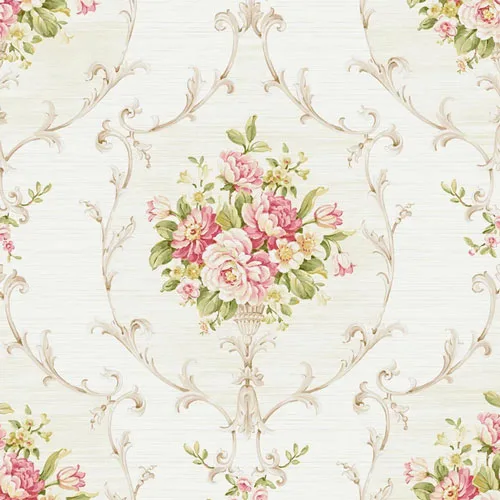
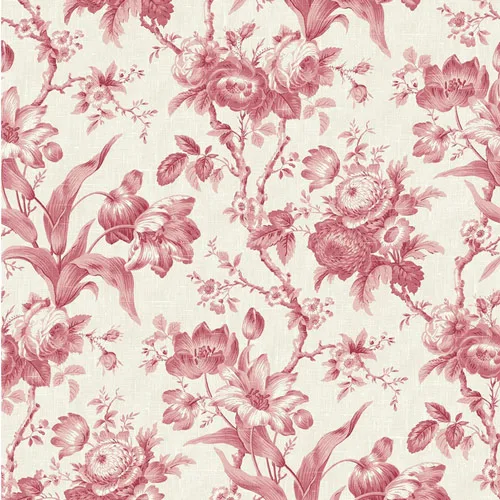
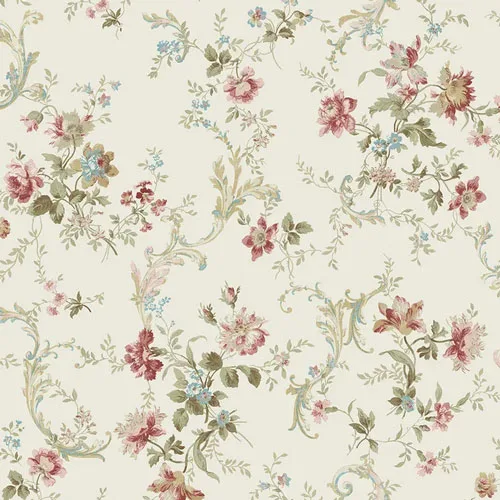
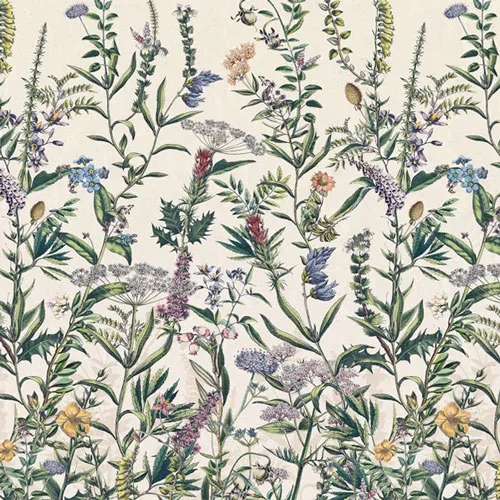
Versatility in Decor
One of the most enchanting aspects of French country floral patterns is their versatility.
They can be effortlessly incorporated into various elements of home decor, from textiles like curtains and upholstery to wall coverings and ceramic accents.
Whether you’re aiming for a bold statement or a subtle nod to the French countryside, these floral patterns offer endless possibilities to infuse your space with charm and character!
Understanding the Space and Mood
Assessing your Room's Function and Lighting
Before introducing French country floral patterns into a room, consider the room’s primary function and the natural lighting it receives.
Spaces used for relaxation, like bedrooms and living rooms, benefit from softer, more subdued floral patterns that evoke a sense of calm and serenity.
In contrast, more active areas such as kitchens and dining rooms can handle vibrant and lively patterns that stimulate the senses and encourage social interaction.
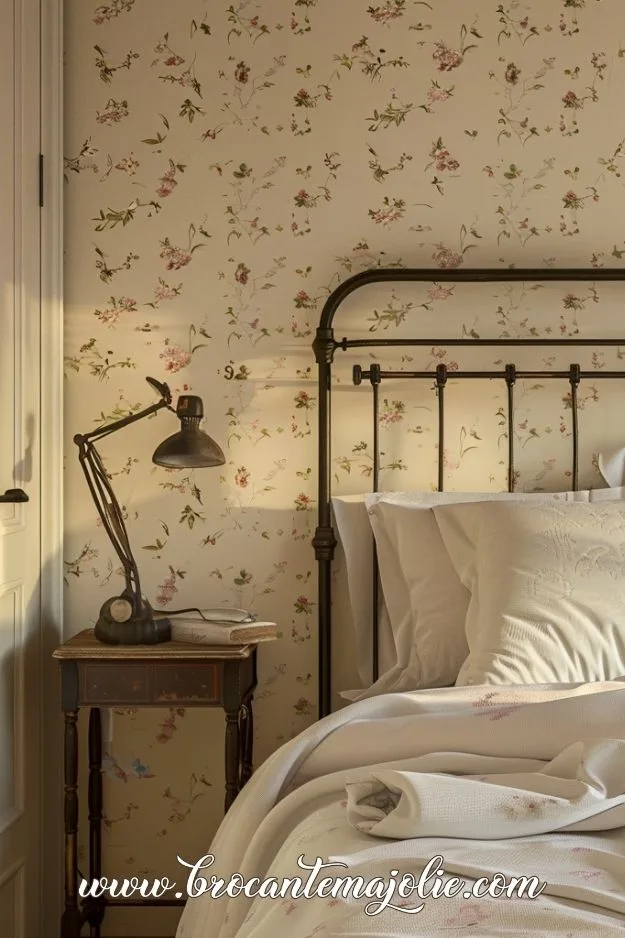
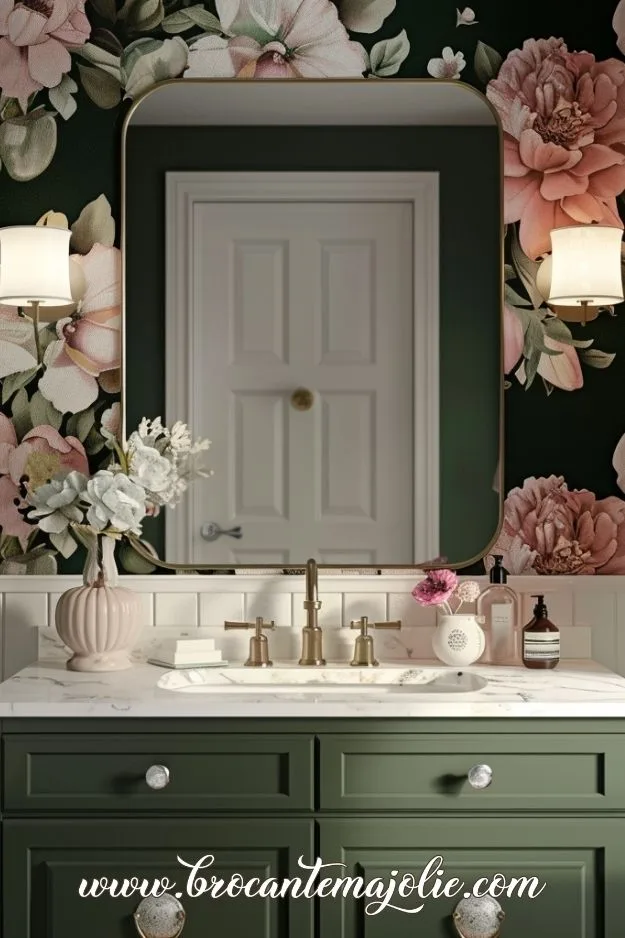
Natural lighting plays a pivotal role in how a pattern is perceived.
Rooms bathed in sunlight can beautifully highlight the subtle nuances of pastel florals, creating an airy and inviting atmosphere.
Meanwhile, spaces with limited natural light may benefit from florals with a bit more contrast or warmth, adding depth and coziness to the area.
Choosing the Right Scale
The scale of the floral pattern should harmonize with the size of the room and its features.
Large, bold patterns can make a striking statement in spacious rooms or on accent walls but may overwhelm smaller spaces.
For compact rooms, consider smaller, more delicate patterns that add texture and interest without dominating the space.
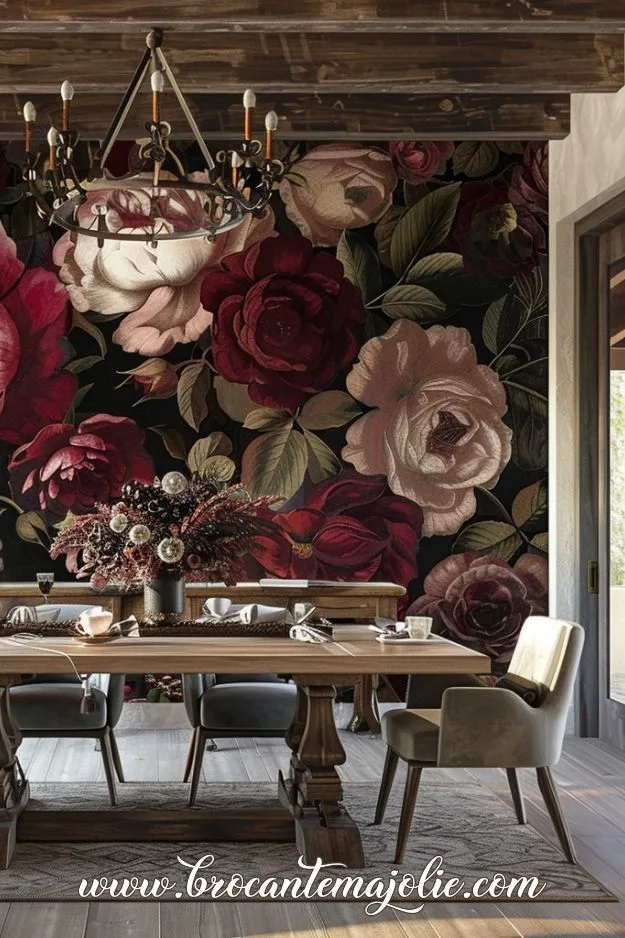
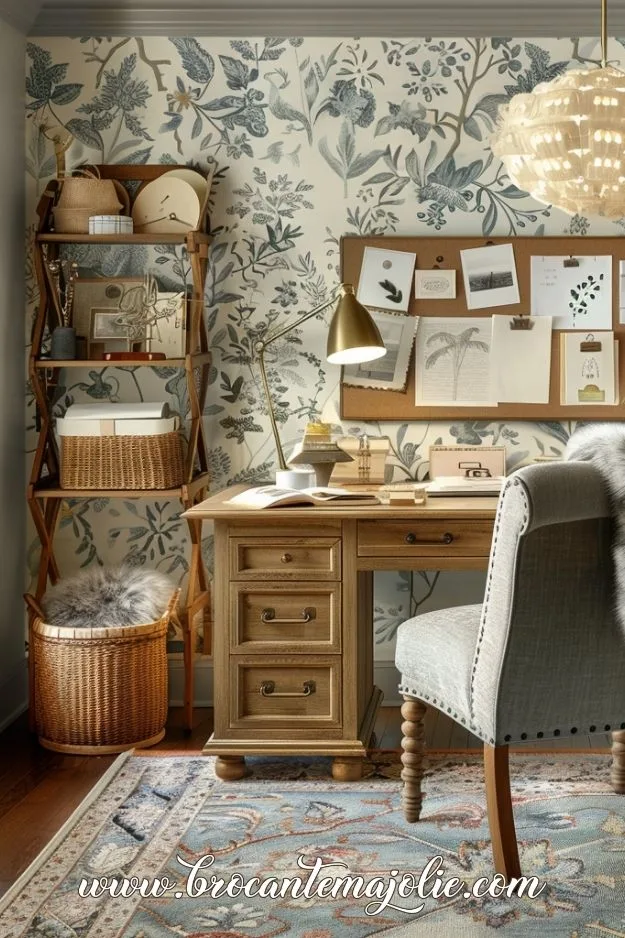
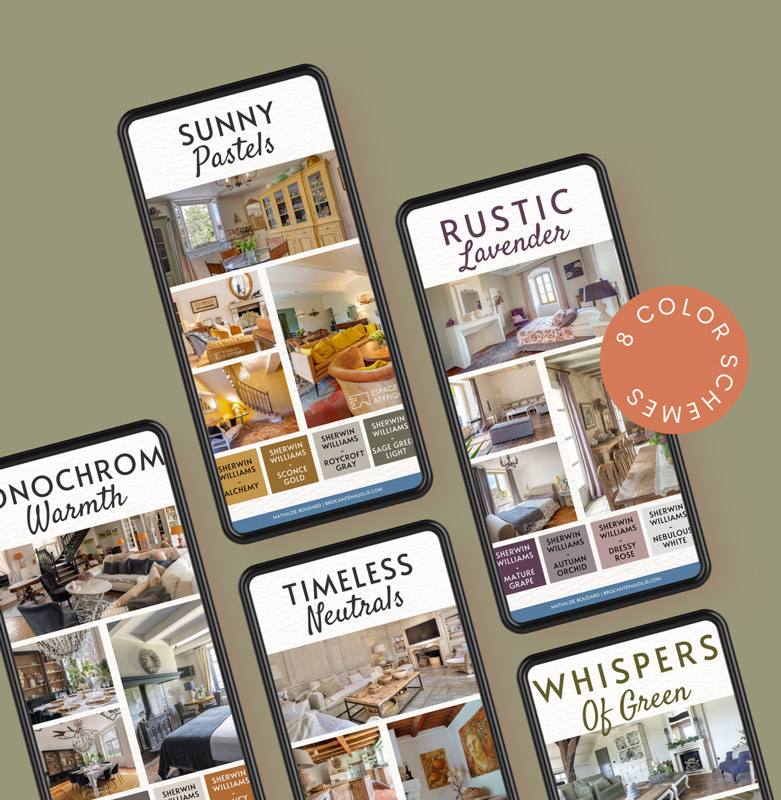
Claim your Free Color schemes
Integration with Existing Decor
When incorporating French country floral patterns, consider the current palette and style of your decor.
These patterns should complement, not clash with, your existing furnishings and accents.
Look for elements within the patterns that can tie back to colors or themes already present in the room, creating a cohesive and harmonious look.
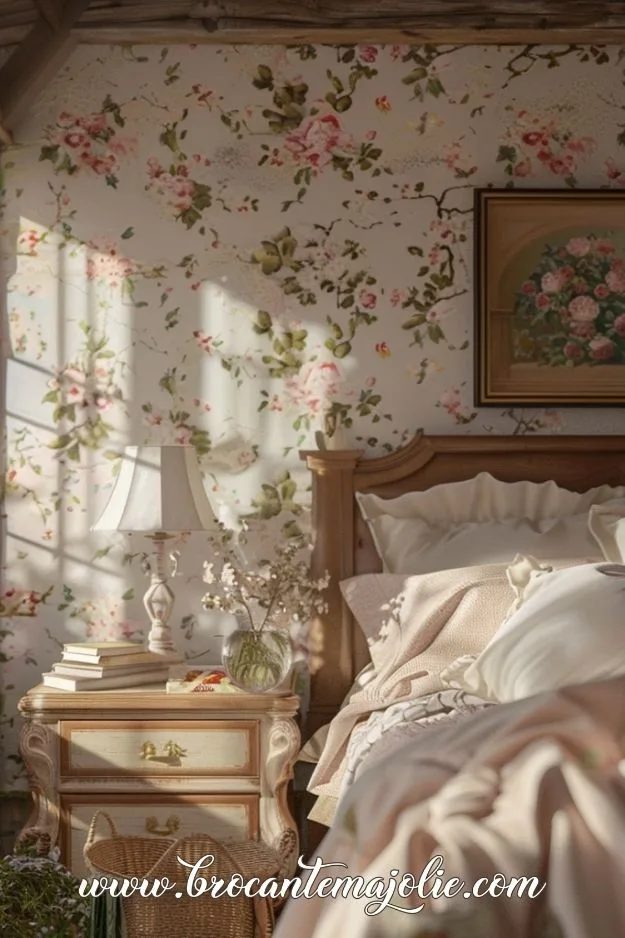
Generally speaking, it’s both better and easier to begin with a specific pattern and then craft the ambiance around it.
This approach helps in choosing furniture, decor, and even the colors of the surrounding walls more cohesively.
However, if you’re planning to introduce wallpaper to an already furnished and decorated room, it’s wise to select a design that incorporates colors present in the room, or alternatively, go for a very subtle pattern.

French vintage shop

